A Native American Perspective on Teaching Tolerance
NHTI’s campus is located on N’dakinna, which is the traditional ancestral homeland of the Abenaki, Pennacook, and Wabanaki peoples past and present. We acknowledge and honor with gratitude the land and waterways and the alnobak (people) who have stewarded N’dakinna throughout the generations.
By Dr. Bridget Arrow
 In September, we honored Autumn Equinox, a day that my people celebrate the days and nights becoming equal. It is also a day we fast and reflect on the year. I am thinking about many lessons from the pandemic and tolerance. As we celebrated Native American Indian Heritage month, I reflected on lessons from my parents and wonder how it can be translated today.
In September, we honored Autumn Equinox, a day that my people celebrate the days and nights becoming equal. It is also a day we fast and reflect on the year. I am thinking about many lessons from the pandemic and tolerance. As we celebrated Native American Indian Heritage month, I reflected on lessons from my parents and wonder how it can be translated today.
I grew up with my parents telling me I was Indigenous and German, spending my early schooling years (elementary through university) in New England before moving to Germany, Ireland, and then to Indian Country in Arizona. My parents planted seeds. I can’t help how, where, and when I was born or to whom. I can’t even say I had much of a role in what I was taught in school. However, I can grow my knowledge with proper “nutrition.” This nutrition includes reflecting on my heritage and filling in the gaps of my knowledge so I understand the past, the present, and the future. I also can grow my empathy, advocacy, and willingness to work on equity. One of the most important things I can do is notice my areas of privilege, even if “relative” to others in my identity groups, so I can use it to create change, be an ally, and, as Frederick Douglass says, agitate, agitate, agitate.
My family of German heritage did not participate in sending people to gas chambers (but they could have, and other families might have this in their own history). I grew up learning a little about the holocaust, but not much in school. So, I educated myself with books, movies, and by talking with people. I have friends who are Jewish and have attended observances and celebrations. They have been some of my strongest allies, particularly in confronting inequitable holiday/observance policies in our local school system. I lived in Germany and visited sites and museums related to WWII history. I acknowledge that some Germans did commit atrocities and that I have benefited on the basic level of having a German parent who survived something that killed 12 million people. I also have a grandfather who was university educated, owned a home, and had a job as professor. I recognize that WWII Nazi leaders ordered atrocities and that these leaders should not be remembered and heralded as “great” through such things as statues. Instead, accurate, truthful history needs to be memorialized and told through the voices of survivors, actions of allies, and words of educators.
Moving forward, I can see that justice needed to include making amends to people who lost their property, health, and family members. Creating equity meant building support systems to help people with this particular trauma integrate back into society. There is a need for empathy, compassion, and seeing the human dignity in each other. Rebuilding community after destruction is essential.
As an anti-bias, anti-racist social justice educator, I have learned that it is important to “name it,” so we can see it, talk about it, and do something. We all have power to start somewhere with education, acknowledgement, and recognition, even if we start with our partner, sibling, cousin, or child. Then we can move toward equity and justice for other populations. We need to “start local” before we can “go global.”
Silence is dangerous. When we are taught what racism is, to notice it, to see its damage, and how to dismantle it, through school and media, then we can talk about it and address it. When I hear, “I just don’t know what to say or do” or worse, “But that’s not racism” or “Racism is over,” then I know we are not ready to have an honest conversation reflecting on this country’s racist history and taking ownership of our part in dismantling it; therefore, you appear to be willing to live with its advantages, while many of us live with its disadvantages and systemic institutionalized oppression.
Silence shows ignorance. There is a gap in knowledge between what white people know about racism and what people of color know. There is a gap in knowledge between what non-Indigenous people know about racism and what Indigenous people know. Do you know truthful, complete, and accurate history about Indigenous people? Do you understand the impact of treaties, the construction of dams, and the creation of national parks? Do you understand Indigenous culture? Can you name Indigenous contributions from past to present? Do you only know Indigenous allies who helped white people or can you name role models who helped Indigenous people? There are people of color and Indigenous people who have internalized inaccurate information and either believe the stereotypes about themselves, or believe if they work hard, they can achieve “like everyone else.” Let me remind you that it did not matter how much or how long or how hard women protested for the right to vote, they were not getting it until a man changed the law. That’s why we need to learn about our own systemic advantages, so we can see the inequities and support change.
Silence perpetuates silence. As you learn, teach others, so that they can learn to speak up and take action and so you can grow your allies. To this day, most people say they are uncomfortable talking about racism and/ or avoid the topic altogether. The silence of my friends is palpable and painful.
After formal education, I grew my own knowledge with different mentors, resources, and conversations. Start by planting a few seeds and trees in your own backyard, and the forest will follow.
– – –
Dr. Bridget Arrow teaches Native American Studies and Human Growth and Development at NHTI. She is a counseling psychologist as well as a school and educational psychologist. As a child, she was taught the Iroquois Law of Seven Fires, in which we pay respect to and honor the previous 7 generations, while thinking about ways to conserve and make way for the next 7 generations. Contact Dr. Arrow at barrow@ccsnh.edu.


